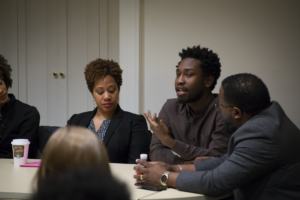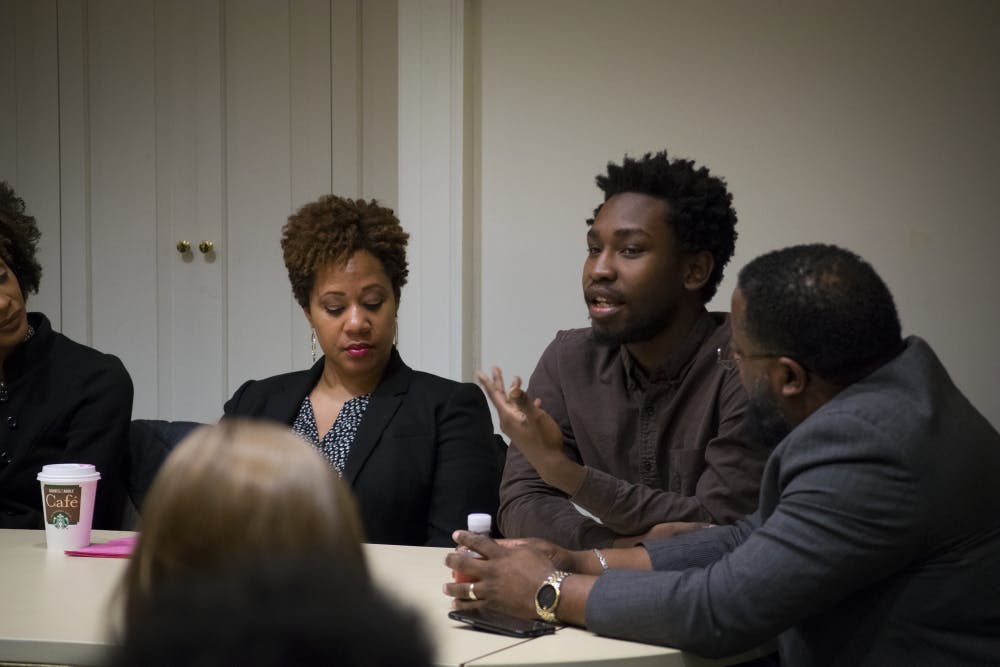By JoAnna DiCicco
Staff Writer
“You can’t come in. My family doesn’t like black people.”
Sean Stallings, assistant vice president of Student Affairs, heard these heartbreaking words from a friend at only 7 years old, forcing him to acknowledge his differences at a young age.
Stallings was among the faculty, staff and students who discussed these differences, as well as the issues of identity, political correctness and cultural appropriation, as part of black Student Union’s Black Experience Panel on the night of Feb. 21 in Paul Loser Hall.
A common view among the panelists was that the term “African American” was politically forced and does not describe their identity as well as it could. Most of the panelists prefer to refer to themselves as “black.”

“I’m trying to figure out who I am and not be told who I am,” Stallings said about the political correctness of the term.
Stallings emphasized that blacks in America struggle with who they are and where they come from.
Zakiya Adair, assistant professor of African-American studies and women’s, gender and sexuality studies, went back to identifying as “black” because being labeled “African American” was less empowering.
“It collapsed very important histories of colonialism and slavery,” Adair said. “I believe that until those bonds and chains are no longer holding us down, it is important to remind people of that.”
Aaron Wilson-Watson, a junior communication studies major on the panel, agreed.
“African American became too soft and too flat,” he said. “It doesn’t accurately portray the political pushiness that ‘I’m black’ gives you.”
The panel agreed that the term “black” pays homage to their history and the fight with slavery that their ancestors were able to overcome.
The umbrella term of “African American” stems from the “lack of understanding that black folk are really diverse,” said Winnifred Brown-Glaude, chair of African-American studies. “‘Black’ is not to collapse differences within that category.”
The panelists also brought up the controversial Black History Month menu at Hopewell High School in nearby Pennington, N.J., which they felt propagated a stereotypical view of foods that represent black culture.
“(People still think) having a certain amount of melanin in your skin means you have a propensity for a certain food,” Adair said. “It’s 2017, and we are not where people think we are.”
The consensus was that the misconceptions of identity stem from the media, education and ultimately, a combination of our social institutions.
“Our education has failed us, not just here in the US, even in Jamaica,” Brown said. “They taught us nothing about Africa or African Americans.”
Luckily, she had advice for anyone dealing with racial ignorance.
“Be patient. It might not necessarily come from a bad place,” Brown said.
She added that it takes time to understand diversity and to not be afraid of it.
Some panelists were disappointed with the turnout. Todd McCrary, Educational Opportunity Fund program specialist, hoped to form a continuing discussion between students.
“I wish other races were present,” McCrary said. “I think that would have provided for a stronger dialogue.”







